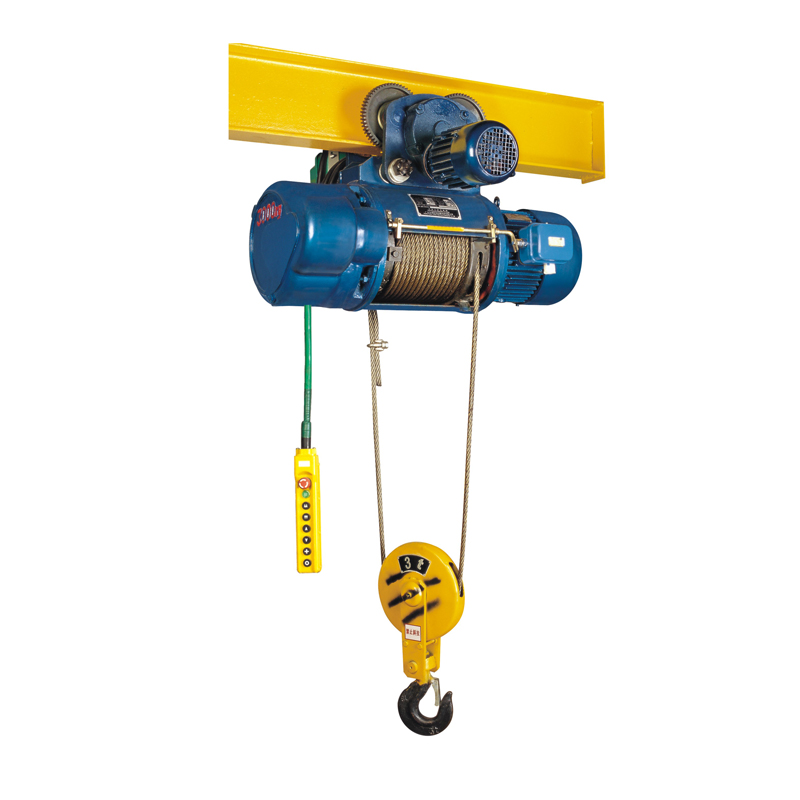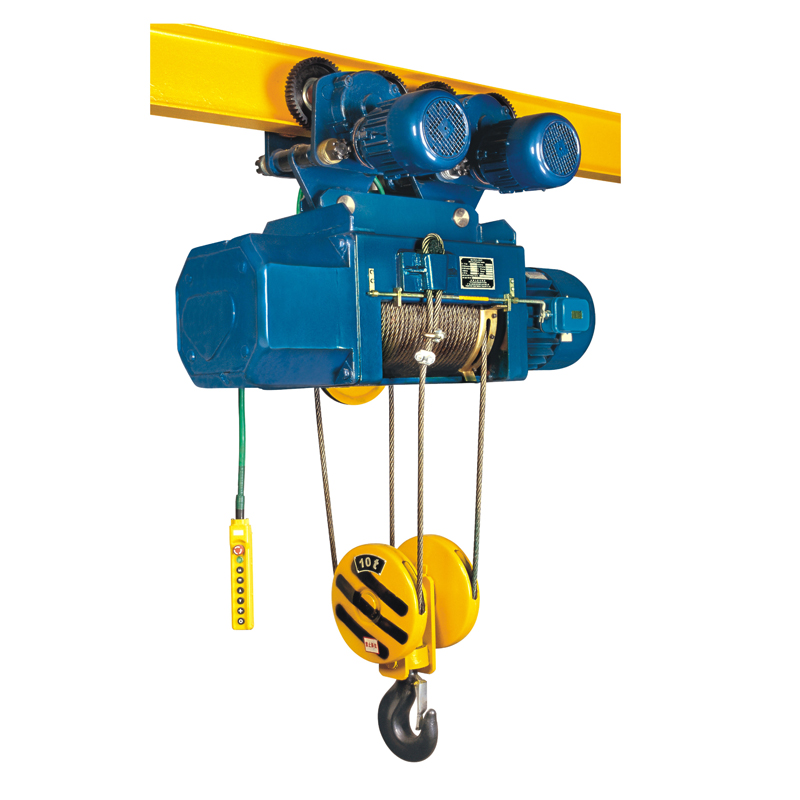
2023-03-20
CD type electric hoist is a kind of light small lifting equipment, mainly used in factories, mines, ports, warehouses and other occasions, for material lifting, loading and unloading and handling. It has the following characteristics:

Structure features: CD type electric hoist is mainly composed of three parts, namely lifting mechanism, running mechanism and electrical device. Lifting mechanism includes motor, reducer, reel device, hook device, etc.; The running mechanism includes a tapered rotor motor with a brake and a trolley transmission device; Electrical devices include couplings, cable current introducers, stoppers, etc.
Working principle: The working principle of CD type electric hoist is to use the conical rotor motor set power and braking force in one of the characteristics, to achieve lifting and operation of two directions of control. When energized, the motor rotor moves to the right, the brake opens, and the reducer drives the drum or small wheel to rotate to realize the lifting or moving of materials; When the power is off, the motor rotor moves left, the brake is closed, so that the drum or small wheel stops rotating, to realize the stop or positioning of the material.
Working level: The working level of CD type electric hoist is M3 (medium), that is, the lifting times per hour are not more than 120 times, and each lifting time is not more than 30 minutes. It is suitable for intermittent operation under normal working conditions.
Classification features: CD type electric hoist can be divided into the following types according to the different lifting speed and installation methods:
CD1 type: Single speed lifting, suitable for intermittent operation under normal working conditions.
MD1 type: Two-speed lifting, namely normal speed and full speed two gears, suitable for precision position or transmission requirements of high occasions.
Fixed type: directly mounted on the frame for use, without running function.
Trolley type: mounted on the track for use, with running function, can be used in the same plane on the straight, curved, circular overhead track.

Compared with other types of electric hoist, CD type electric hoist has the following differences:
Compared with HC type, it has smaller lifting weight (generally less than 16 tons), compact structure and light dead weight. The HC type has a large lifting weight (mostly 16-100 tons), complex structure and heavy weight.
Compared with WH type, it uses conical rotor motor as the driving force source of lifting and running mechanism; WH type uses cylinder rotor brake as the driving force source, and is equipped with an independent operating mechanism.
Compared with PA type electric hoist, CD type electric hoist uses wire rope as lifting medium; Compared with PA type electric hoist, CD type electric hoist uses wire rope as lifting medium; And PA type electric hoist using nylon rope or chain as lifting medium. This makes the CD type electric hoist with higher safety and durability, but also increases its weight and cost.
Compared with BZD type electric hoist, CD type electric hoist has a larger working range and higher working efficiency; The BZD type electric hoist has a more flexible operation mode and lower noise level. BZD electric hoist is a kind of rotary arm crane, suitable for narrow space or no track occasions.
CD type electric hoist is a kind of light small lifting equipment suitable for a variety of occasions, it has the advantages of compact structure, simple operation, safe and reliable, high working efficiency. It also comes in different types and specifications, which can be selected according to different needs and conditions. Compared with other types of electric hoist, it has its own characteristics and advantages and disadvantages, which need to be considered comprehensively according to the specific situation.
Copyright @ Guangdong Yongtong Crane Machinery Co., Ltd. 粤ICP备2022051937号